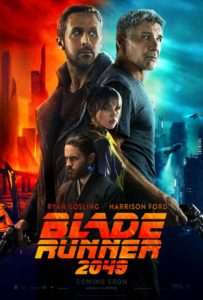 Blade Runner 2049
Blade Runner 2049
Director: Denis Villeneuve
Writer: Hampton Fancher & Michael Green
Starring: Harrison Ford, Ryan Gosling, Ana de Armas, Jared Leto, Dave Bautista, Robin Wright, Wood Harris
Music: Hans Zimmer & Benjamin Wallfisch
Cinematography: Roger Deakins
Production Designer: Dennis Gassner
Editor: Joe Walker
Studio: Warner Bros.
Release Date: October 6, 2017
Referring to Ridley Scott’s 1982 original as a groundbreaking or seminal achievement in film can be met, invariably, with gushing agreement or perplexed criticism depending on the audience. The ambiguity of the original, curtailed in subsequent iterations, has been a point of contention for film aficionados since its release. As such, the narrative additions and more defined endings of the Director’s and Final Cuts, have only increased the cinematic stature of Deckard’s tale as a whole over time.
Scott’s methodical noir meditation on the existential considerations of an anthropomorphic AI labor force is considered by many to be the birth of cyberpunk as a genre in popular culture. In Denis Villeneuve’s contemplative sequel, he maintains the auteur’s thematic intensity with aplomb, while injecting his own brand of circumspect complexity. Ryan Gosling’s stalwart Blade Runner K is frightfully efficient and immediately paints a stark contrast against his jaded predecessor. He is subservient by design and seems complacent by preference, resigned to his predetermined application.
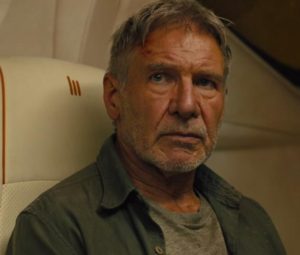
Ford’s grizzled, caustic veteran Blade Runner may at first seem a more vital and inspired than his successor, but in recognizing the specificity of Villeneuve’s methodology this contrast is clearly intentional. K is a different model, forged by Wallace in the fires of Tyrell Corporation’s failures. The director is willing to risk a lack of attachment to his protagonist early on in a gamble that perceiving these events through his eyes will assure a bond far stronger, and it is one well wagered. As we follow K’s investigation we discover his complexity, his aspirations, and his conviction as he discovers himself.
Better than a corollary recognition of something intended to seem human, we are witnessing a form of spiritual exogenesis, and hopefully wholly invested in the transformation of a soulless automaton into something more human than human. As a species that seems to define its’ significance in the natural order by our cognitive resilience and adaptability, what could be more relatable than K’s journey. Gosling’s heartrending delineation from stoic certainty into almost manic anxiety is spellbinding. To say nothing of his evolving infatuation with Joi, his holographic companion AI portrayed by the intoxicating Ana de Armas, K’s personification is impeccably rendered.
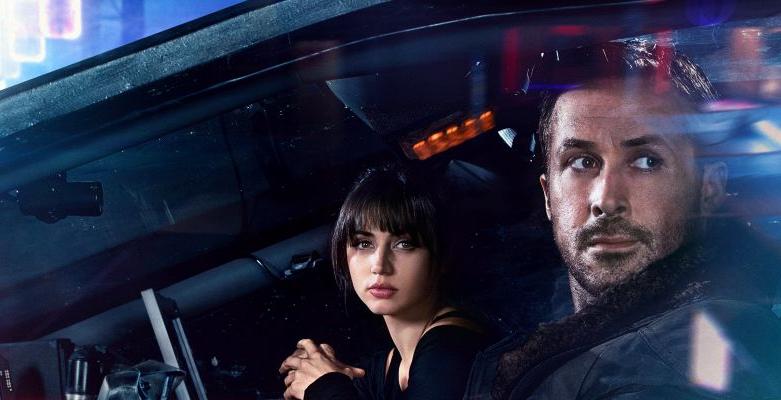
Aesthetic continuity between the films lend greatly to the immersion, but Deakins’ cinematography and Gassner’s production design up the ante in this entry by orders of magnitude. With Zimmer and Wallfisch’s simple, but terribly evocative synth score ardently punctuating the dramatic and verisimilar action sequences, nary a shadow falls out of place. This is devastatingly precise filmmaking, and if there is a reservation to be had, it may be that the synthesis of sight and sound is simply too finely manicured. Hardly a worthy complaint against this truly transcendent effort. With an AI revolution very real on our own horizon, the moral and ethical questions raised here are not just relevant. They are profoundly necessary.
Christian Davenport

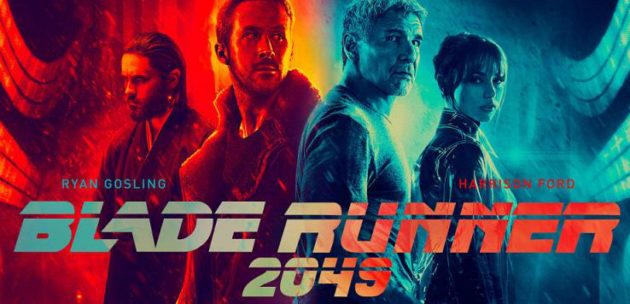
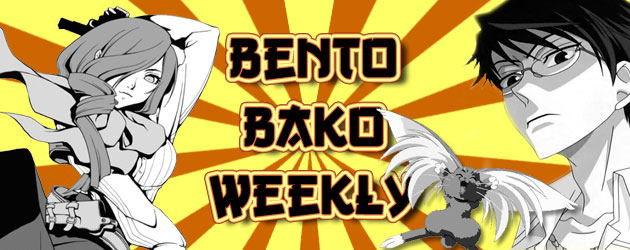


So the movie was good and worth watching? That’s the gist I think I’m getting here. I liked the first film and hope this one is a solid one too.
Pingback: Titan Comics Reviews: Blade Runner 2019 Vol. 3: Home Again, Home Again – ComicAttack.net